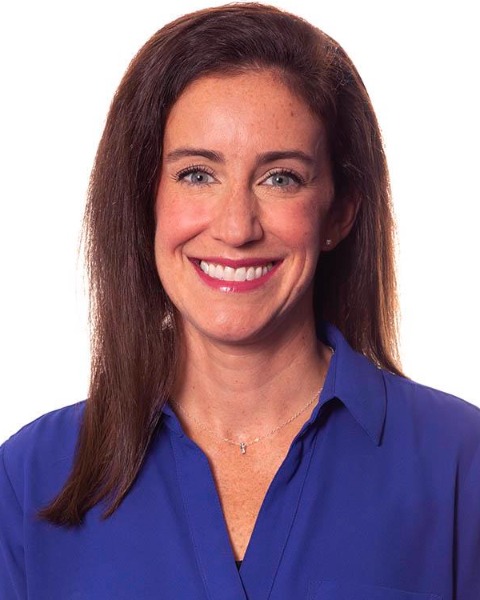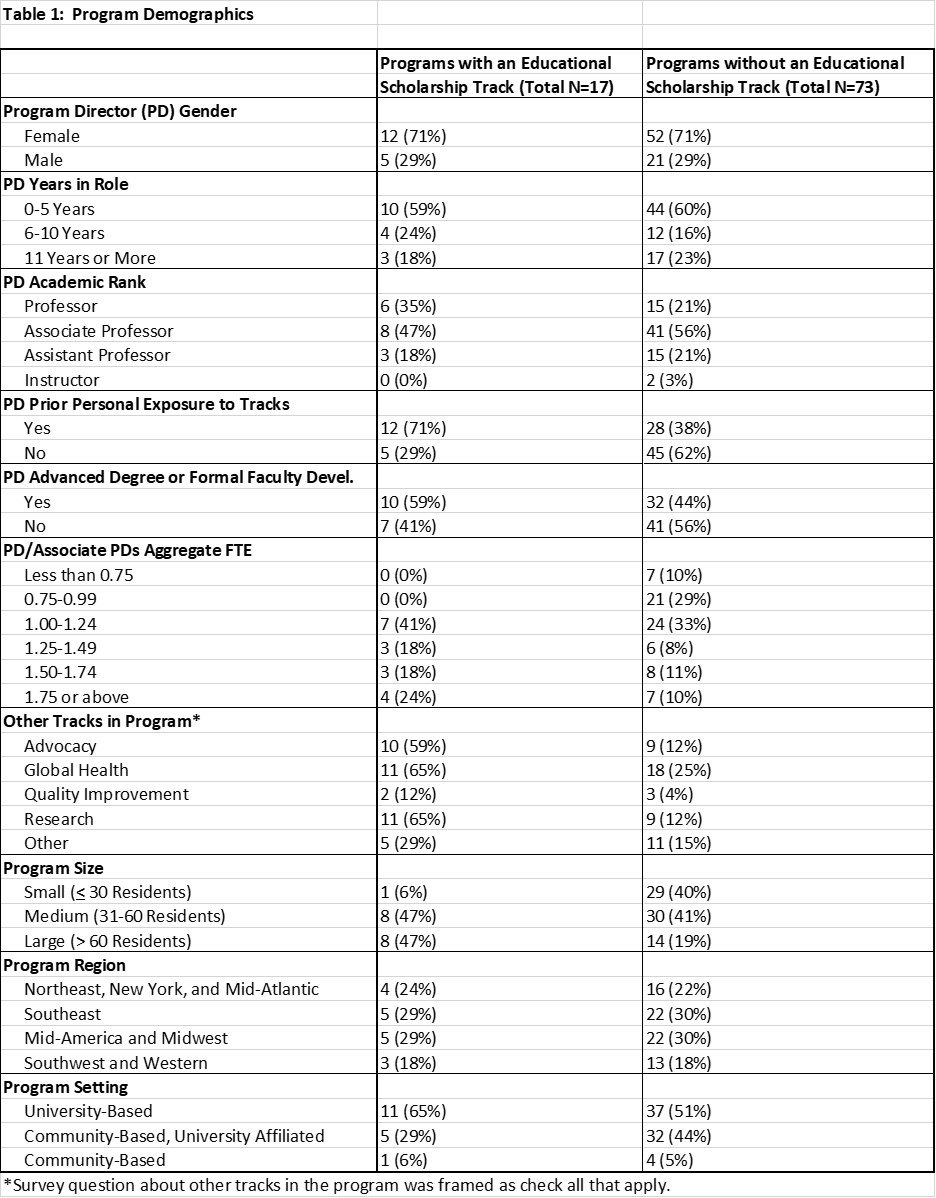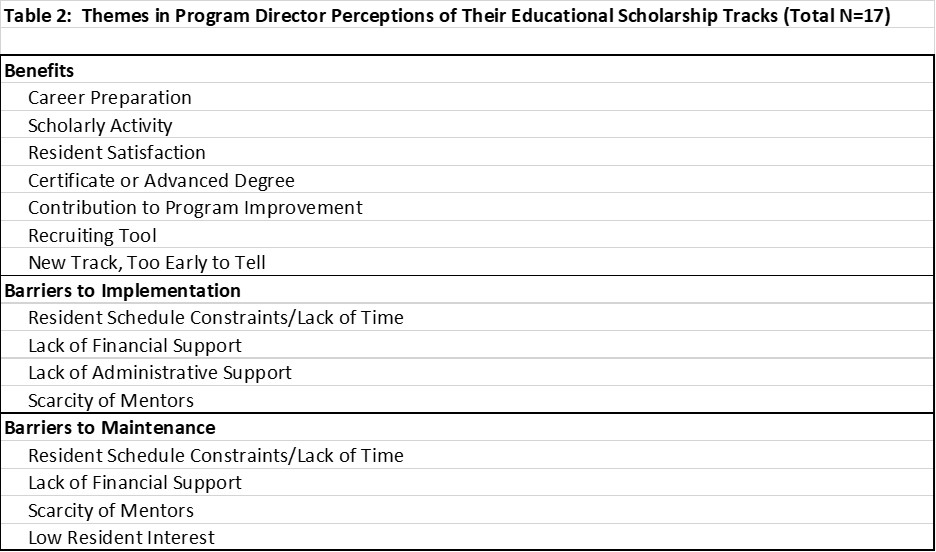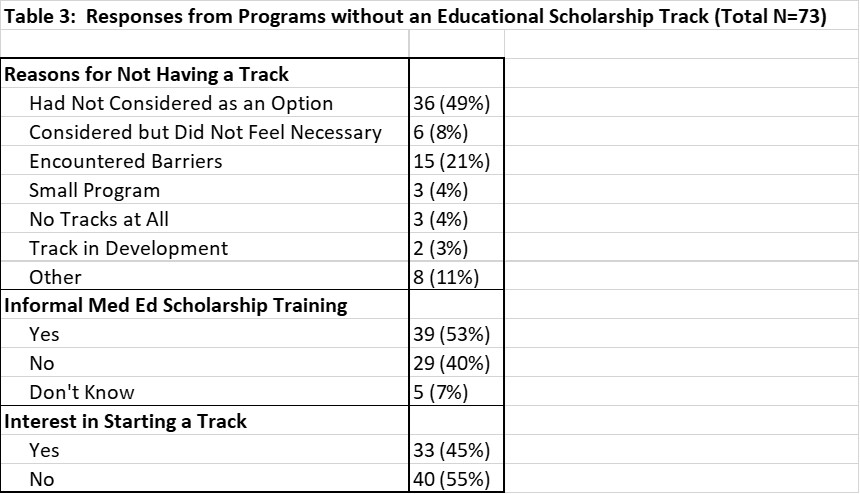Medical Education: Resident
Medical Education 1: Resident 1
455 - Educational Scholarship Tracks in Pediatric Residency: A National Needs Assessment
Publication Number: 455.122

Jacqueline M. Walker, MD, MHPE (she/her/hers)
Fellowship Director, Pediatric Hospital Medicine
Children's Mercy Hospitals and Clinics
Kansas City, Missouri, United States
Presenting Author(s)
Background:
Physicians who choose educational scholarship as their academic niche lack early exposure to the building blocks of a career in medical education. The APPD LEARN Resident Scholarly Activity Evaluation Group has conducted multiple studies demonstrating the value of scholarship training for residents, though none focused on educational scholarship specifically. Residents as Teachers programs are widespread, but most address clinical teaching rather than the rigorous conduct and dissemination of educational work. A formal assessment is warranted to determine the need for educational scholarship tracks in residency.
Objective: Our study objectives were to describe the prevalence of educational scholarship tracks in pediatric residencies nationally, analyze benefits of and barriers to implementation, and identify key curricular content and educational strategies.
Design/Methods:
Guided by Kern’s Six Step Approach to Curriculum Development, we performed a national cross-sectional survey of pediatric residency program directors (PDs) in Spring 2022 (APPD Survey 5991). We used descriptive statistics to characterize the sample. Two authors coded qualitative data from open-ended questions and achieved consensus on themes, and a third coder resolved disputes.
Results: The response rate was 49% (93/190 PDs). After excluding 3 respondents due to data quality concerns, we found that 19% (17/90) of programs had an educational scholarship track. Programs with an educational scholarship track were more likely to be medium or large sized (> 31 residents) and have other tracks (e.g., global health). They also were more likely to have a PD with prior personal exposure to tracks, an advanced degree or formal faculty development experience, and greater protected time. Most educational scholarship tracks spanned 1 year or longer, and educational topics included learning theory, teaching strategies, curriculum design, and assessment. Most tracks included independent and group work, mentorship, and a longitudinal project. Benefits cited included career preparation, resident satisfaction, and scholarly productivity; barriers noted were resident scheduling constraints and lack of mentors. PDs without an educational scholarship track commonly said they had not considered it as an option, but 45% (33/73) expressed interest in starting one.
Conclusion(s):
Our study shows a low prevalence of educational scholarship tracks in pediatric residencies nationally but ample opportunity and interest in their development. Results will inform the design of an educational scholarship track to be implemented and studied at multiple institutions.


